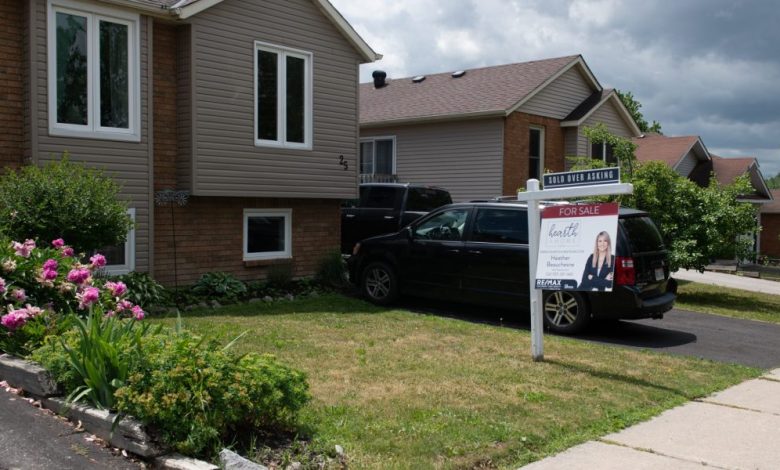Canada prohibits the purchase of residential real estate by foreigners

When it rains it pours. As governments around the world grapple with a flood of foreign buyers crowding into their local property markets, many are trying to stem the tide. Singapore, for example, has banned foreigners from buying or acquiring restricted residential properties since 1973. Denmark has required permanent residency or at least five consecutive years of residency since 1994 before foreign buyers can purchase residential property. And in 2018 New Zealand switched to a ban preventing non-residents from buying existing homes in the country.
Canada is the latest country to enact such a ban in hopes of improving housing affordability. On January 1, a law banning foreign buyers from buying homes went into effect at low interest rates. Diana Mok, professor of real estate finance and economics at the University of Toronto, said wealth That affordability was an issue well before the pandemic, as the average Canadian’s income was about 10 times below the median home price, where a healthier ratio would be about three or four. Still, the country’s recent ban on foreign buyers is unlikely to have a significant impact on improving housing affordability, and it could have some unintended consequences as well.
Mok said all three levels of government, from federal to provincial to local, have tried to address the issue. At the provincial level, for example, they have imposed taxes on foreign buyers, but never bans.
The recently enacted ban on home ownership by non-Canadians is a federal ban. Essentially, it bans what it defines as “non-Canadian” from buying Canadian residential real estate for two years with the intention of lowering real estate prices. As Canadian Prime Minister Justin Trudeau put it, “Houses are for people, not investors,” and blamed skyrocketing prices for Canadian homes attracting foreign investors.
But experts have said wealth that foreign buyers are not the problem as they own less than 6% of Canadian residential property as of 2020. Mok said the intended effect of the ban is simply to cool down a very hot market that has only recently been slowed by rising interest rates, isolating a very small group (ie foreign buyers) will not materially impact affordability.
“I suppose it’s more of a political gesture to show Canadians that this federal government is willing to do our best and move heaven and earth just to support Canadians [and] Ease the affordability issue,” Mok said Wealth.
“It’s like a big thunderstorm, but then a little drizzle follows,” Mok said, explaining that the impact of foreign homeownership restrictions is tiny compared to changes in interest and mortgage rates.
Richard Halinda, an attorney whose practice primarily involves real estate law, echoed mok and narrated wealth that prohibiting non-Canadians from buying real estate won’t solve the problem because it only represents a small fraction of the market. According to Halinda, the real reason the market has been so crazy is the low interest rates and the fact that more and more people are investing in real estate instead of stocks.
Halinda said he believes the law is unnecessary as protections such as taxes are already in place. Ontario already had a 25% tax on foreign buyers (up from 20%) and British Columbia has a similar 20% tax.
“That already dried up a lot of the market for non-residents because they didn’t want to pay 20% more,” Halinda said.
It’s not just taxes that have depressed foreign investment in residential real estate. Brendon Ogmundson, chief economist for the British Columbia Real Estate Association, said wealth that foreign investment in residential real estate fell during the pandemic as borders closed.
The ban will obviously lower demand, not significantly, but it’s not the solution to Canada’s affordability problems, Ogmundson said. It’s a supply issue, Ogmundson said, there just isn’t enough housing. The little offer that would be released by the ban is not enough. Also, foreign buyers tend to buy luxury homes, which isn’t essential for the average Canadian, he said.
Though the law was passed last year, said Liza Kaufman, founding partner at Sotheby’s International Realty Quebec wealth that their clients were and are not aware of this. Kaufman said it was “buried somewhere in the middle of their legislation,” and people are still trying to understand the implications of the law.
Kaufman said she’s already seen potential buyers change their plans to avoid the law’s ambiguity, though there are several exceptions, such as nonresidents married to citizens, refugees who are considered temporary residents, and international students. Meanwhile, the ban also excludes areas outside the census metropolitan areas or census agglomerations (large and populated centers).
Aside from the law’s unpopularity among those in the residential real estate sector, there are ambiguities within the law and its supplemental regulations that affect the commercial real estate market.
One of these is the classification of what constitutes a residential property. The ordinance defines it as “land containing no habitable dwellings that is zoned for residential use or mixed use”.
Andy Gibbons, a partner at Tories whose practice focuses on commercial real estate, said wealth that the vast majority of commercial buildings in downtown Toronto are designated as mixed-use zones. So for the purposes of the Act these buildings would be considered dwellings. As a result, some foreign buyers are putting their transactions on hold for fear of facing penalties ranging from a $10,000 fine to a forced sale.
Gibbons called it an “unintended consequence” that has a “canceling effect” on the commercial real estate market. And all the while, those within the housing sector are calling it a policy move unlikely to significantly impact the country’s housing crisis.
In other words, it’s drizzling out there north of the border.
Learn how to navigate and build trust in your organization with The Trust Factor, a weekly newsletter exploring what leaders need to succeed. Login here.



